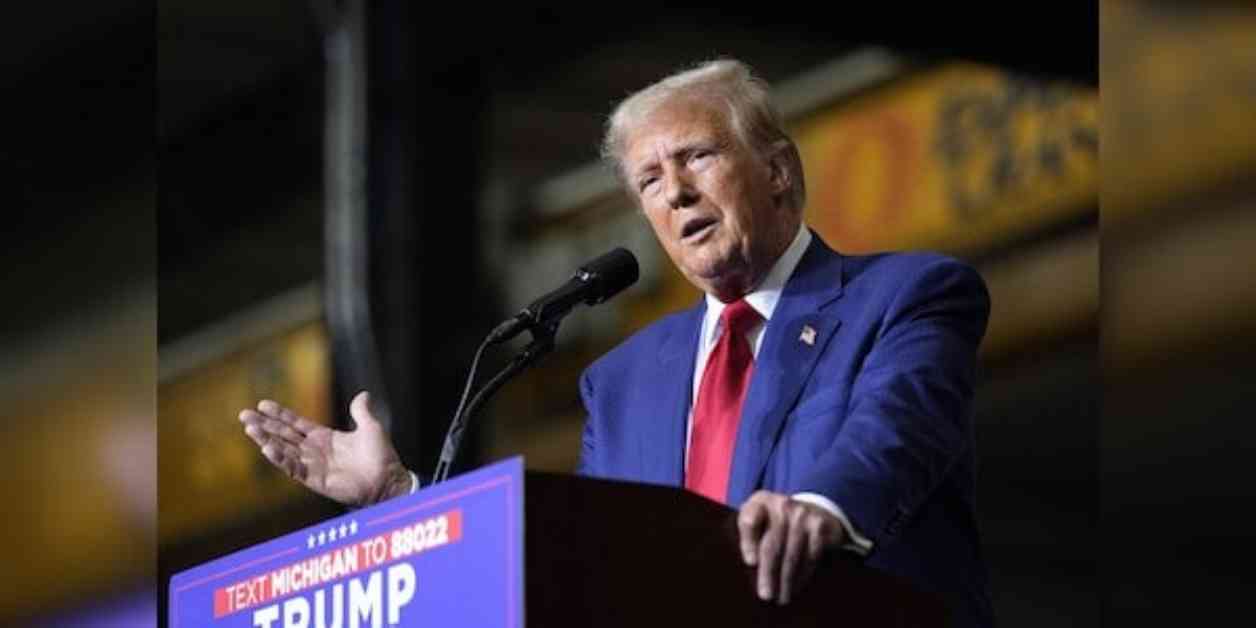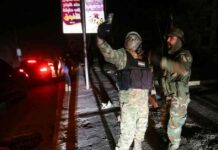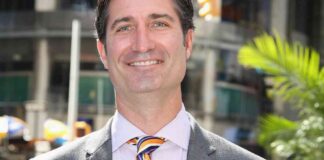The Ominous Rhetoric of Trump as Election Day Approaches
As the upcoming election approaches, the rhetoric coming from Republican presidential nominee Donald Trump has taken a dark turn. With early voting on the horizon, Trump has made ominous statements about prosecuting individuals he believes cheated in the 2020 election, which he falsely claimed he won. His escalating threats have raised concerns about the integrity of the electoral process and the potential consequences of his rhetoric.
Trump’s Pledge to Prosecute Election Cheaters
In recent speeches and social media posts, Trump has vowed to prosecute anyone who cheats in the upcoming election. He has accused Democrats, election officials, and other unspecified forces of cheating in the 2020 election, leading to his loss to President Joe Biden. Without providing evidence to support his claims, Trump has doubled down on his accusations and promised to take drastic action against those he believes are responsible for his defeat.
In a post on his social media network, Truth Social, Trump stated, “Those involved in unscrupulous behavior will be sought out, caught, and prosecuted at levels, unfortunately, never seen before in our Country.” This declaration mirrors the language used by authoritarian leaders, raising concerns about Trump’s intentions if he were to return to power.
Trump’s Threats Against Political Adversaries
Trump’s rhetoric goes beyond mere accusations of election fraud. He has also pledged to prosecute his political adversaries if he regains the presidency. Plans outlined in Project 2025, a conservative proposal for a new Trump administration, suggest using federal prosecutors to target the president’s opponents. This strategy aims to punish individuals who Trump disagrees with, regardless of whether they have committed any crimes.
Legal experts and political analysts have expressed alarm at Trump’s willingness to weaponize the Justice Department against his perceived enemies. Justin Levitt, a former Justice Department official, warned that Trump’s rhetoric indicates a desire to use law enforcement to punish dissenting voices, even if they have not broken any laws. The implications of such actions could have far-reaching consequences for the rule of law and democratic norms in the United States.
Dangerous Rhetoric and Threats of Retribution
Trump’s threats have not been limited to election officials and political opponents. He has also targeted individuals who have engaged in lawful activities, such as Facebook founder Mark Zuckerberg and Michigan’s Secretary of State Jocelyn Benson. Trump’s inflammatory language and accusations have created a climate of fear and uncertainty among election officials, who already face threats due to his false claims of electoral corruption.
The escalation of Trump’s rhetoric has prompted concerns about potential acts of violence or retribution from his supporters. Jocelyn Benson, Michigan’s Secretary of State, expressed alarm at the level of vitriol and threats directed at election officials, warning that such rhetoric could incite violence before or after the election. The White House press secretary, Karine Jean-Pierre, condemned Trump’s dangerous rhetoric, emphasizing the importance of upholding democratic principles in a free and fair election.
Challenges to Election Integrity and Voter Intimidation
In addition to his verbal threats, Trump has called for police officers to monitor polling stations for voter fraud in the upcoming election. His remarks to the Fraternal Order of Police have raised concerns about potential voter intimidation and violations of federal and state laws. Jonathan Diaz, director of voting advocacy and partnerships at the Campaign Legal Center, noted that laws against voter intimidation were established to prevent law enforcement officers from interfering with the electoral process, especially in communities with a history of disenfranchisement.
The presence of law enforcement at polling stations can evoke memories of past abuses and raise fears of intimidation among voters, particularly in marginalized communities. Stephen Richer, the Republican Recorder of Maricopa County, Arizona, highlighted the risks of using law enforcement to monitor elections, citing the case of Tina Peters, a former county clerk who was convicted for her actions in attempting to prove Trump’s false claims of election fraud.
Conclusion
As Election Day looms closer, the escalating rhetoric of Donald Trump poses a significant threat to the integrity of the electoral process and the stability of American democracy. His unfounded claims of election fraud, coupled with threats of prosecution against perceived enemies, have created a climate of fear and uncertainty among election officials and voters alike. The implications of Trump’s rhetoric go beyond mere political posturing, raising concerns about the future of democratic norms and the rule of law in the United States. It is essential for all Americans to remain vigilant and uphold the principles of democracy in the face of such dangerous rhetoric.






















